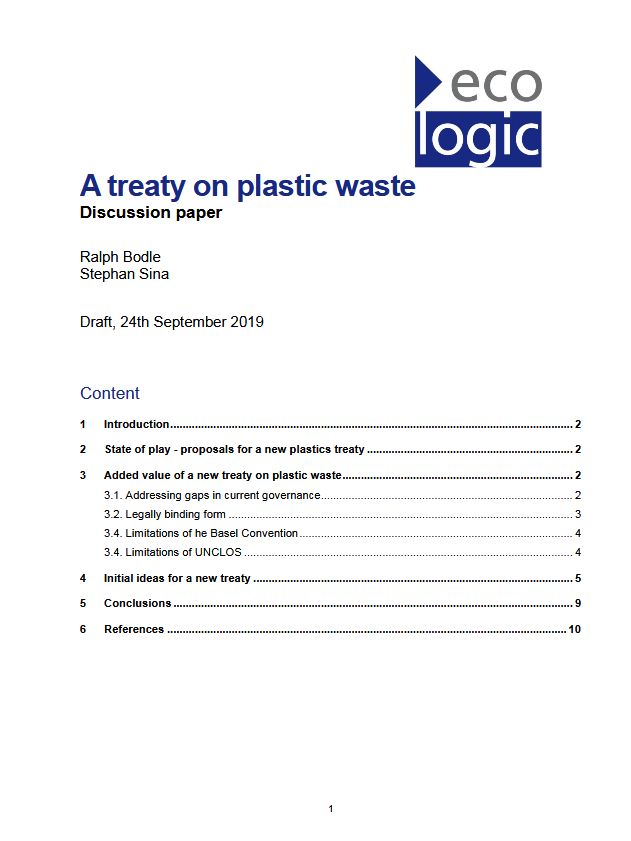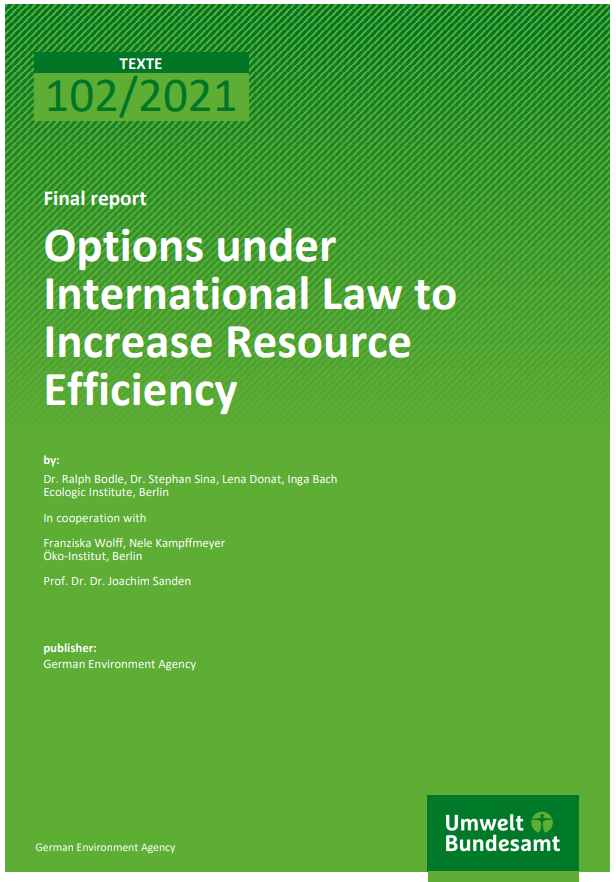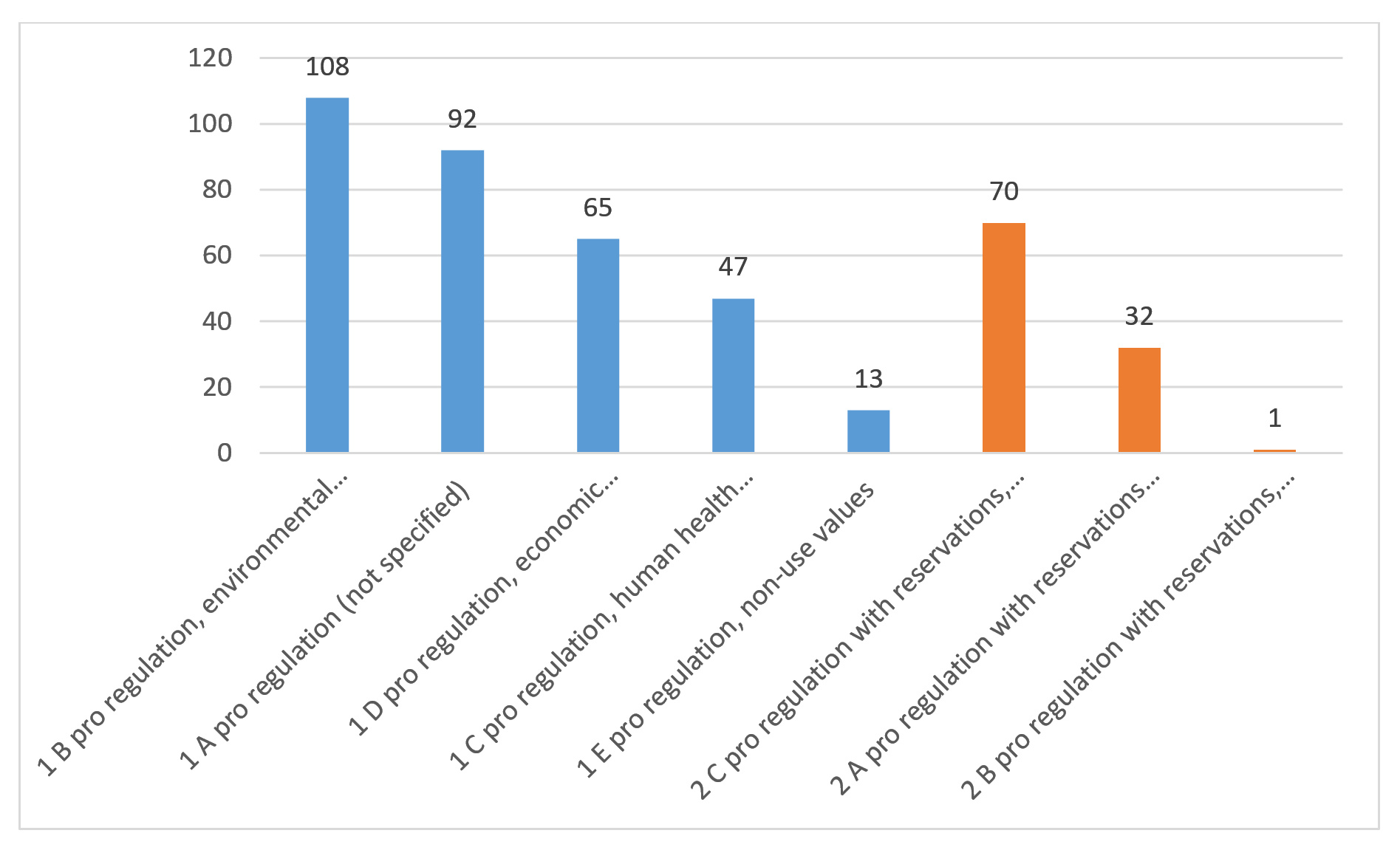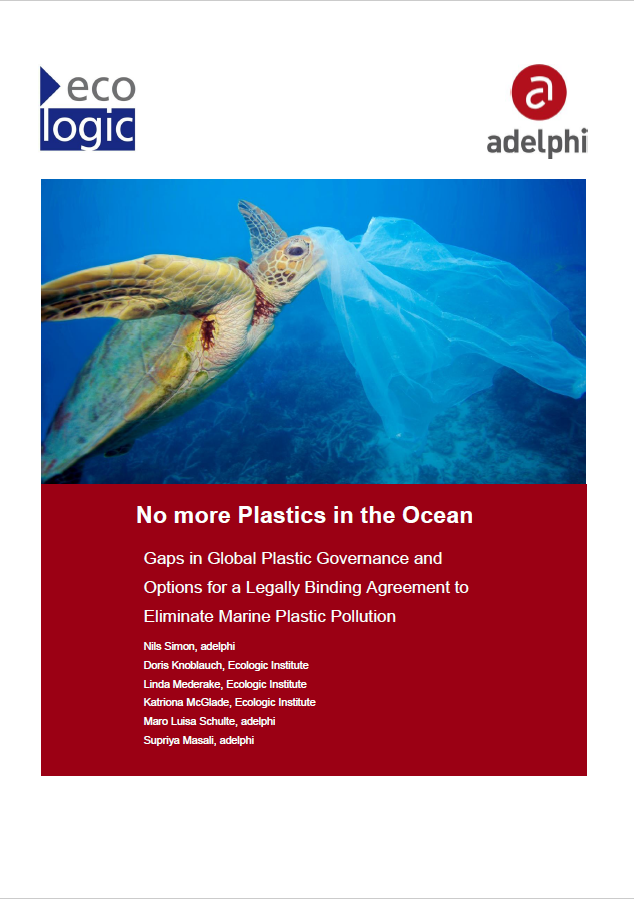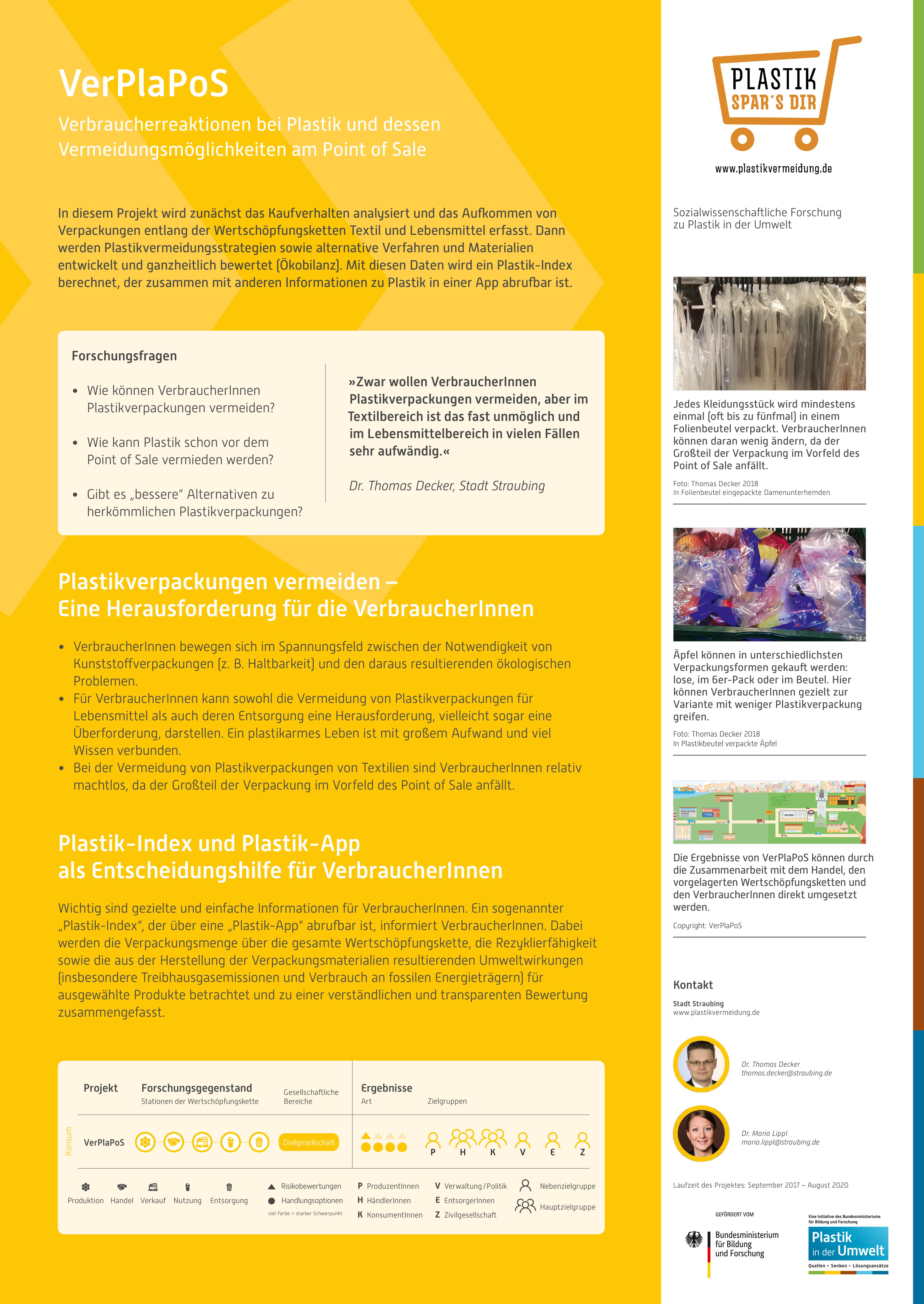A Treaty on Plastic Waste
Discussion paper
- Publication
- Citation
Bodle, Ralph; Sina, Stephan (2019), "A treaty on plastic waste. Discussion paper for the international round-table on Tackling global plastic pollution – Ways towards an international convention", Ecologic Institute, Berlin.
The discussion paper presents the rationale for a new treaty on tackling plastic waste and highlights its possible added value. The objective would be to reduce marine plastic litter through a comprehensive approach that also includes land-based sources, a life cycle approach to plastic and is open to future developments. The purpose would not be to prohibit plastics as such.
A new treaty on plastic waste would have added value because it can address the gaps in and limitations of existing governance: These include in particular addressing pollution at its source, especially from land-based sources, addressing not just waste but the whole life cycle of plastics and microplastics, and taking into account the approach of extended producer responsibility. A new treaty would provide added value also because of its legal form: A binding treaty ideally shows a high level of long-term commitment both at the international as well as at the national level.
Existing treaties such as the Basel Convention and the Convention on the Law of the Sea (UNCLOS) would not allow for an overarching and comprehensive approach because they have limitations such as a narrow mandate or political reluctance to widen their scope.
Apart from "standard" features, the paper sets out essential elements of a new treaty on plastic waste, including, for instance, goals and targets, which can be formulated and combined as quantitative or qualitative, collective or individual; core obligations for states such as periodically submitting national action plans, transparency on implementation and review at the international level, addressing the full life cycle of plastics with a focus on prevention and not just waste management, the concept of extended producer responsibility (EPR) and issues specific to microplastics.
